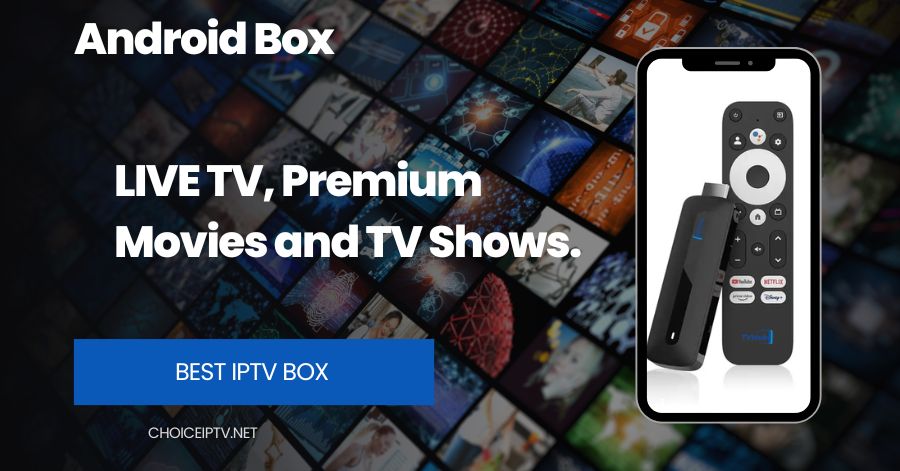
Disclaimer. This information is only for educational purposes. TechyMana.com neither owns nor controls the streaming apps, add-ons, websites, IPTV, or services that are mentioned on the page. To the TechyMana team’s knowledge, none of these services are verified, and we have no reason to believe they are legally permitted to distribute all the content shown. We don’t verify the legality of each app/service in every region, and you really should verify the legality of all the services that you access. We definitely don’t recommend using any unverified services to access content that isn’t in the public domain. If you do, you’ll be the only one who is responsible for what you access.
We have advanced dramatically in the digital age in how we consume television and watch streaming content. One major advancement has been IPTV—Internet Protocol Television. With an IPTV box, you can watch live or recorded content from basic cable channels and premium pay channels and, like most of us, find evening entertainment. But what is an IPTV box? What does it do? And what do you need to know before you go out and buy one? This article will overview IPTV boxes so that you can … well, so that you can have your “wits about you” on the subject before you consider plunking down any cash for one.
The IPTV box is a device that allows users to stream television content over the internet rather than through traditional cable or satellite services. This sort of box connects to your TV and uses your internet connection to deliver a ton of live and on-demand content. They are usually easy to set up, easy to use, and come with various apps that help users find and consume video content. Some of the most popular IPTV boxes around today include the Amazon Fire TV Stick, Roku, and various “Android TV” boxes.
IPTV sends the television programs through the internet by using Internet Protocol. It does not employ the traditional ways of sending signals by cables or satellites, like in other forms of television. IPTV works on a broadband connection. Using an IPTV box to route use of this internet-based service, one can tune into or access content in a way that feels very much like traditional television-“watching in real time,” as it were-but far more flexible.
The main advantage of using an IPTV box is the wonderful variety of content available. Users can access a plethoric number of channels from every corner of the globe, including live sports, international shows, and channels that you’d be hard-pressed to find even with a satellite dish. And most of these IPTV services have a catch-up TV and video-on-demand library as well, which ensures that if you missed something on when it aired first, you get to watch it later; if the mood for a film or a series hits you, you don’t stand a chance: there is a selection against what you will find on the IPTV VOD bookshelf.
Most importantly, though, using an IPTV service tends to be much cheaper than subscribing to traditional cable. I’ve seen some IPTV service prices that are so low they’ve made me legitimate ponder what my life would be like if I flipped the switch and cut the cord for real. And even if the price is low, IPTV boxes are easy to use and set up, too, which makes them accessible to a realistic range of users.
When you think about buying an IPTV box, there are a good number of aspects that you ought to consider. First and foremost, of course, you want to know about the availability of content: Which channels and shows does the service you are considering offer? Not all IPTV services carry the same selection of content. Some are far richer than others.
You also need to think about your internet connection. IPTVs need a stable and fast internet connection for the best viewing experience. Don’t kid yourself: If your streaming box buffers often or if it has a tendency to freeze, then there’s pretty much no way you’re going to enjoy using it. … Also, make sure you understand the user interface of your potential box. Ask yourself if you can easily navigate through it to get to the content you’re in the mood to watch. Finally, and this is very important, also consider the legality of the service you are thinking about using. Content piracy is illegal, and its negative impact goes far beyond merely taking a hit on your account balance and peace of mind.
Purchasing an IPTV box can revolutionize the way you watch television, offering much more content and much more flexibility than traditional cable services. But don’t just take my word for it. Use your minuscule college library privileges to consult this article and three of its sources to understand IPTV better. Then explore alternatives to the box and factors affecting the potential purchase of a box. Whether you enjoy watching sports, like movies, or like content from other parts of the world, a box will likely be satisfactory for you if you properly set it up.

